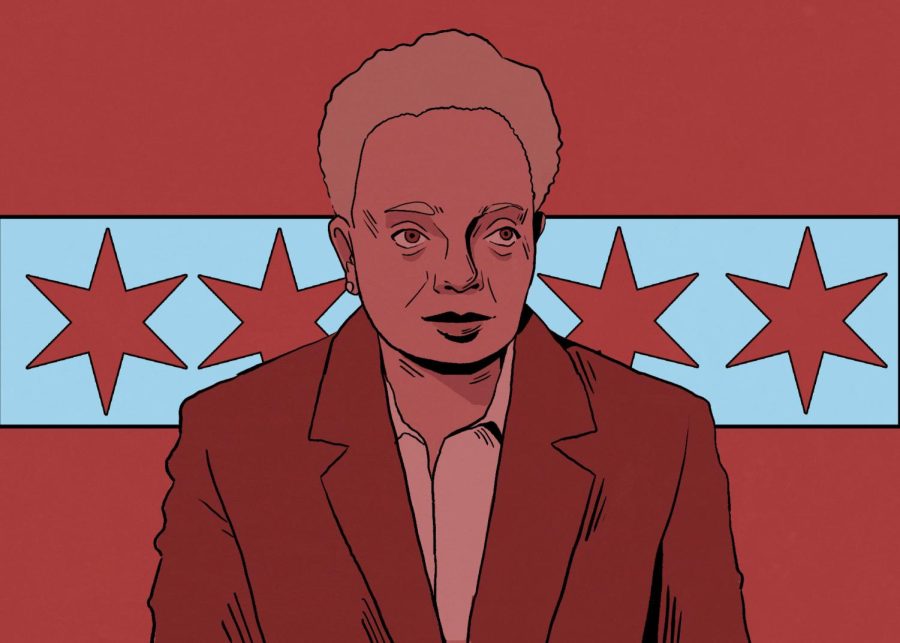Lori Lightfoot
February 24, 2023

Four years ago, Mayor Lori Lightfoot emerged from the back of a crowded pack to win the top job in Chicago. It was a historic win. Lightfoot is the first Black and openly gay leader of the city.
But she has been an unpopular mayor who has had to grapple with the pandemic, calls for police accountability and a public school system that is losing students. She also has faced criticism over her handling of the George Floyd protests.
She now faces eight candidates in a packed race that may well hinge on whether voters believe she can make the city safe, fix public transportation issues and address public education.
Much of the information for this story was sourced from the Chicago Tribune’s questionnaire, published with Lightfoot’s answers on Jan. 31.
Crime and Public Safety
Lightfoot has ambitious plans to “put more police on the streets and to get guns off them,” according to a Lightfoot for Mayor ad.
Lightfoot also plans to:
- tackle illegal guns, hold dangerous people accountable and invest in communities to address the root causes of violence,
- deploy gun laws at the local level such as the recently passed ban on assault weapons in Illinois,
- focus on giving young people an off-ramp from criminal conduct through social services and other supports.
Economic Development
Lightfoot supports amending city tax subsidies for corporations. Many Chicago businesses were hit hard by the pandemic, and Lightfoot wants to “expand opportunity and drive inclusive economic growth,” through tax subsidy and grant programs like the Chicago Recovery Plan, a federal funding program with a goal to catalyze a sustainable economic recovery from the COVID-19 pandemic.
She also wants to:
- continue the collaboration between city government, community organizations, the business community and philanthropy through programs like INVEST South/West, a community improvement initiative, to marshal resources toward 10 neighborhoods on Chicago’s South and West sides,
- fund “in-full” — otherwise known as the rededication of land to new construction — developments to continue investments in neighborhoods through the Chicago Recovery Plan grants,
- draw visitors back to Chicago’s downtown area by boosting foot traffic through experiences like the Sueños Music Festival, NASCAR, Sundays on State, and Lollapalooza.
Housing
Lightfoot supports accessory dwelling units, which are smaller, independent units located on the same lot as a detached single-family home, to promote naturally affordable units across Chicago.
She wants to accelerate the current pipeline for the Chicago Housing Authority’s affordable housing developments.
Transportation
Lightfoot has faced criticism regarding the city’s public transportation on her watch. CTA ridership is down, and crime is up. Riders also have complained about “ghost” trains and buses that never show up.
She supports:
- funding increases for CTA or other public transit agencies as federal relief funding runs out,
- funding for extending the Red Line to the Far South Side,
- investing in bike and pedestrian infrastructure to reduce traffic congestion and air pollution while promoting physical activity and active transportation.
Education
Lightfoot supports a ban on closing any additional Chicago public schools and a transition to an elected school board. The mayor currently appoints all school board members.